A few months ago when I thought about how I might celebrate the 50th anniversary of Earth Day, it did not occur to me that I, and many others, would be forbidden to report to work. This has created the opportunity for more learning and doing. In honor of Earth Day, Real Hartford will have one week of treehugging, dirt worshipping posts.
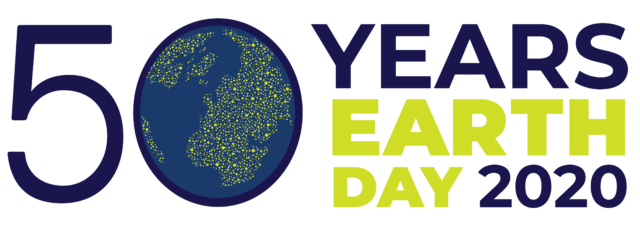
Amateur: Whether you are just getting started, or you need a refresher
- Get smart. Make choices based on credible information. For instance, we have seen sloppy decisions lately, like Gov. Lamont’s rollback on Connecticut’s plastic bag ban during the Covid-19 pandemic; the excuse was that retailers felt uncomfortable touching patrons’ cloth bags. What science tells us is that the virus can be detected on plastic up to 72 hours and on porous surfaces up to 24 hours; however, throwing cloth bags (and clothing) in the washing machine with detergent and warm water is enough to take care of the problem, and — and here’s the detail to pay attention to: this “sounds really scary. But what’s more important is the amount of the virus that remains. It’s less than 0.1% of the starting virus material. Infection is theoretically possible but unlikely at the levels remaining after a few days.” What science tells us is that we are far more likely to contract the virus from being close to someone who is infected, than from touching an iffy surface. That long example shows how getting information from reputable sources can help you to make better choices, and in this case, there’s not enough evidence to support Lamont’s choice to waffle on a plastic bag tax. Having those retailers wear gloves or simply not handle customers’ bags would be a more reasonable and responsible solution to fears.
- Learn some more: Earth Day Live (April 22-24, 2020) is a livestream of artists, activists, and experts. As they say, “The fights against the coronavirus and the climate crisis go hand-in-hand, and as we work to flatten the curve of this pandemic, we must strive toward the longer term goal of building a society rooted in sustainability and justice.” If you don’t know how the virus connects with climate change, it’s time to find out.
- Going on a cleaning frenzy? Figure out the best way to dispose of items. RecycleCT can tell you the best way to get rid of anything from spray paint to fluorescent bulbs. Although “wishful recycling” may have the best of intentions, it can be hazardous or clog machines at the facilities, so stop and look things up if you aren’t sure what goes in the blue bins. Single-use masks and gloves go in the trash; consider a reusable cloth mask that can be laundered as needed. Unless you are expert at disposal and not touching your face, you might re-think those gloves; the World Health Organization advises the public that regularly washing hands with soap and water is more effective than incorrectly using rubber gloves.
- Keep chemicals out of the water, and fight to make sure that those with access to larger amounts of pollutants are stopped from polluting.
- Replace single-use plastic water with a robust, sustainable container and if your workplace still uses that throwaway nonsense, ask them to eliminate this practice that makes them look wasteful and silly. We get to design some new realities post-Covid, and this is a fine time for a fresh start. Today we can order drinking fountains that double as bottle refill stations. Users do not need to physically touch their containers to the fountain, by the way. There are sensors that will turn the water on. No need for waste. No need for those dodgy fountains that people put their mouths over. (If the science of virus transmission does not calm your nerves, then don’t go running for Naive water — fill more than one reusable container at home and schlep that to work. Find creative solutions.)
- When shopping, support companies that will take back and recycle their products. Opt for a growler from your local brewery. Get your hand sanitizer from those that will reuse their empty bottles. Larger retailers also do this, from Preserve to REI. If a brand you like is not doing this yet, call or write them to ask that they extend producer responsibility. Along these lines, if a company you like is using wasteful packaging, encourage them to switch to something more sustainable.
- When shopping online, batch/combine your orders to avoid excess packaging and trips.
- Many are already doing this at the moment, but go bold and rethink your shopping habits entirely. Do you need it? Do you already have it but forgot you acquired one already? Could something else work in its place? Can you borrow it instead? See if a neighbor is seeking to get rid of something that you want or need. Does that sound hard? Dare to ask for things.
- Turn down your thermostat in the winter. Dress for the season that you’re in. Sweaters and hats can be worn indoors. You will want it set to 55 degrees F (or warmer) so that the pipes do not freeze, because cleaning up the mess from a burst pipe also uses resources.
- Opt for natural cooling in the summer, as much as possible. If it’s not a heat wave, does the a/c unit need to be running? If the pandemic lockdown taught us anything, it’s that comfort and safety are NOT the same.
- Travel smart by choosing train or bus, rather than plane, whenever possible. You might not have the time for transatlantic sailboat trips, but taking the train to DC is reasonable. Baby, don’t fear the public transit.
- Cut waste by learning how to cook. You won’t have a trash bin filled with ramen wrappers and takeout boxes, besides, basic life skills are good to have.
- Tend to eat one type of food often? Check out the bulk bins in your grocery store. If you know you make rice and beans every week, it makes no sense to only purchase small packages. There is even an app to help you find stores with bulk bins in your area. Don’t assume that the pandemic has shut down bulk purchasing as an option; there are places in state that have figured out how to make it work.
- Ask for planetary facts to be added alongside nutrition facts, and then make better, informed choices
- If you eat fish, and aren’t planning to stop, review Monterey Bay Aquarium’s Seafood Watch consumer guide to learn which seafood to avoid
- If you’ve already switched away from one-use straws and bags, think about those other single-use products you have control over: diapers and menstrual products.
- Do some citizen science: measure noise pollution, observe trees, help track pollen, and more.
- Think about resilience and regeneration, not just sustainability.
Intermediate: You upgraded your bulbs years ago
- Take a Green Sabbath.
- If food security was not on your mind before, it certainly is now. Reduce shipping-related impact by eating food that is in season, regionally. Shop your local farmers’ market or join a CSA to reduce food miles.
- Grow your own! Find a community garden if you have no yard (or aren’t allowed to alter it). There’s something to be said for not having to mask up when you feel like a salad. Not sure about your skills yet? Look for volunteer opportunities with organizations like Keney Park Sustainability Project and KNOX to learn while helping.
- Get outside! Spend time enjoying the outdoors. Visit Connecticut’s State Parks and Forests, the many land trusts, or even your local town or city parks. Remind yourself why our environment is worth caring about. (Yes, you can even do this during the pandemic, unless you are sick or at high risk. I wrote a post about how to enjoy nature without running into many, or any, other people)
- Build or buy a compost bin, or if you do not have the space, subscribe to a collection service. Check to see if your local community garden has a compost bin for food scraps. This keeps food waste out of the landfill or incinerator, and helps it become useful in another form.
- If you have a garden or lawn, install a rain barrel. Hartford residents can even get these at no cost, though no barrels are being distributed until after the Covid-19 shutdown is over.
- Plant a tree. Plant many. Can’t do this in your own yard? Donate to an organization like Arbor Day Foundation or KNOX Hartford. Also, help educate friends and neighbors about the benefits of trees. Help people to understand that trees grow to different heights, and it’s possible to plant smaller ones that are unlikely to do damage to a house should there be a windstorm.
- Learn about the Connecticut River Conservancy and volunteer in the Source to Sea Cleanup next September! There’s nothing to stop you and your family from doing your own cleanup before then, but wait until the flooding subsides.
- If you’d rather stay completely on dry land, there’s plenty of litter to tackle, which can be a good project for you and the family. Consider adopting a storm drain. Tip: alert your Department of Public Works that there are bags or bulky waste items to remove from the site. If you’ve never done this before, wear shoes that won’t be pierced by glass or sharp metal objects, wear gloves, and bring more bags than you think you need.
- Hold politicians accountable, whether that means making polite phone calls or wearing them down until they are ready to listen to reason. Individuals can do a lot, but policy matters. Look at the plastic bag ban. It only took weeks after the legislation went into effect for us to see obvious, visible changes — no more plastic bags floating along the roadside. Many people will do the right thing because we are selfless and want to honor nature, or because we are selfish and want to keep our habitat. Others need to be persuaded by the law. Think big, but think small, too — federal, state, and local levels of government. A green stimulus plan is in the works, so if you needed a starting point, you’ve got one.
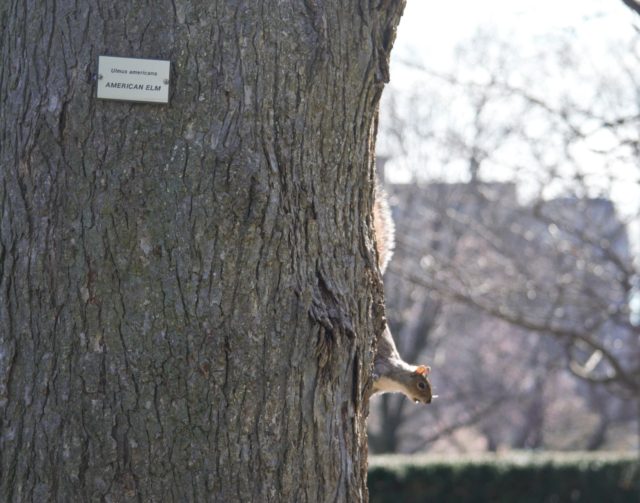
Level up: When asked how you help the planet, you don’t start and end your response with “I recycle.” You are invested and you don’t care if the changes are simple or challenging.
- The four lifestyle choices that have the biggest impact on greenhouse gas emissions are as follows: reducing family size, living car-free, avoiding air travel, and buying green energy. Three of those four are also going to save you money. Do I want to spend $1500 on car insurance every year, or would I rather do almost anything else with that money?
- Live close enough to work so that public transit, biking, or walking are feasible options. If this is not possible, negotiate teleworking, at least one day each week. (Trust me, it’s far more enjoyable when there’s not a pandemic on and going to your corner coffee shop with your laptop is an option) Another painless possibility? Carpool. Learn about the car- and vanpool options in your area. After watching locals comply with Lamont’s pandemic-related orders, I have lost my patience for the excuse people give about why they can’t significantly reduce their car use. Was this shut down convenient? Hell no. But y’all went with it because public health. What do we think fighting this climate crisis is about? We can’t be “staying home, staying safe” if we don’t have a habitat anymore. We have an opportunity to get our priorities correct.
- But really, get on the bus. We can now pay with a rechargeable card or with our phones. There is room for service to improve, but we don’t get that unless there are people demanding it. Those who have the privilege of time and energy should advocate for better local service.
- Demand that your community become more livable by putting people first. Walkable cities have wide sidewalks, robust transit, and safe pedestrian crossings. How do you get these things? Hollering at anyone who will listen. Start by using 311. Participate in the monthly Complete Streets meeting. Contact your elected officials, whether that means phone calls, emails, or wildly tagging them on social media. Get creative if you feel unheard. Are they giving you bullshit excuses for why something can’t happen? Talk back.
- Likewise, fight for bicycle infrastructure. Often people equate bikes with exercise. Bikes are fun. They do help people maintain a healthier lifestyle. But bikes also serve as reliable and inexpensive transportation. If we make the roads safer for people on bikes, we use fewer medical resources.
- Want even more ideas? See what My Plastic Free Life, No Impact Man, and Curbed suggest.
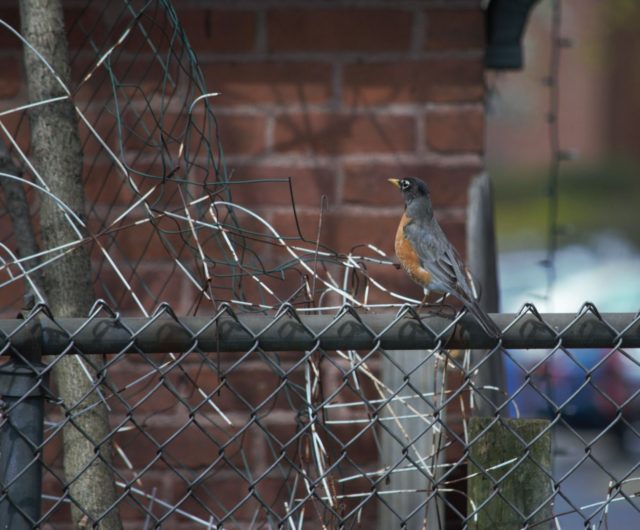
Okay, what’s not here that should be? Leave a note in the comment area below.
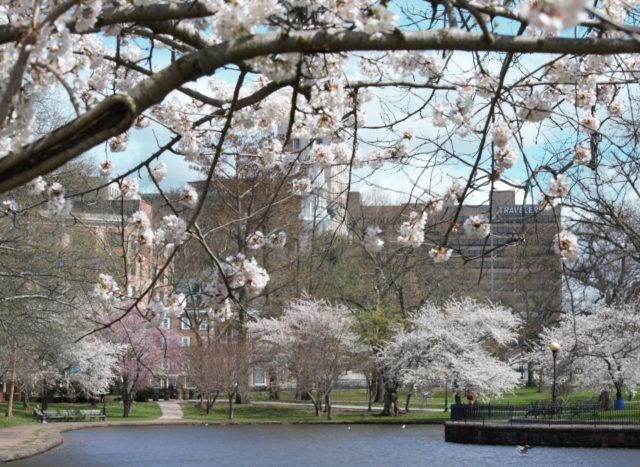

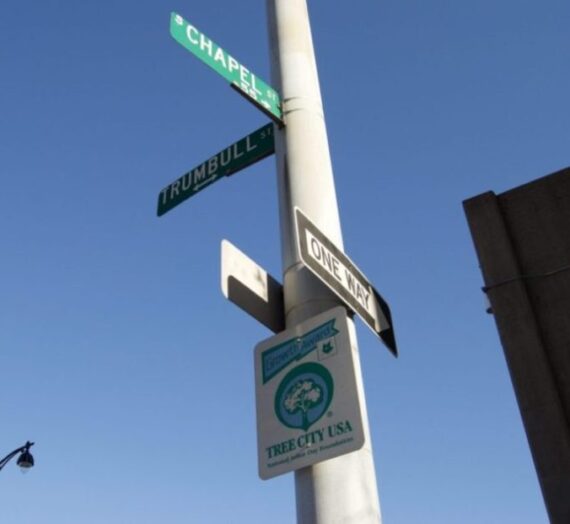
Angela Pomfret
Single Use Toilet Paper. Family Cloth is a thing y’all.